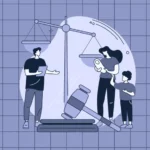Call: (800) 382-3176 or Chat with us
- Home
- Knowledge Base
- Brain Injury: Initial Steps
- What are the Symptoms of Long-Term Brain Damage?
What are the Symptoms of Long-Term Brain Damage?
It’s crucial to be able to recognize the signs of long term brain damage. This knowledge is important not, for seeking medical care but also for exploring potential legal options in cases of medical negligence. Throughout my career I’ve been dedicated to helping individuals affected by malpractice. I’ve witnessed firsthand the consequences that this type of injury can have.
Here are some key indicators to watch out for;
1. Cognitive Impairments; Early warning signs may include difficulties with memory, concentration, decision making and problem solving.
2. Motor Function Issues; Individuals may experience clumsiness, muscle weakness and challenges with balance and coordination.
3. Speech and Language Challenges; Brain damage can manifest as struggles with speaking understanding language or expressing thoughts coherently.
4. Behavioral Changes; It’s common to observe mood swings, irritability, depression, anxiety and personality changes.
5. Sensory Impairments; Visual or auditory problems may arise along with changes in sensation like numbness or tingling.
6. Seizures; Those with long term brain damage may face an increased risk of seizures that require management.
Information, on malpractice related to brain damage
When there are concerns, about negligence certain symptoms become especially important:
Failure to Diagnose or Treat; If a healthcare provider fails to recognize or properly address a condition that leads to brain damage it could be seen as negligence.
Surgical Errors; Mistakes made during surgery that result in brain damage might give grounds for a claim.
Substandard Care; Inadequate post operative care or monitoring that leads to brain damage can also be considered malpractice.Impact on
Quality of Life; The long term consequences of brain damage can greatly affect an individuals ability to work, function and enjoy life.
These effects play a role in determining compensation in a malpractice lawsuit.Taking Action;The first step is recognizing the symptoms of long term brain damage. If you or someone you care about experiences these symptoms, especially if you suspect malpractice as the cause it is essential to seek both legal advice.
Navigating a Difficult Situation;
Dealing with the aftermath of long term brain damage can be emotionally and financially overwhelming. If you find yourself in this situation please know that you are not alone. With my experience, in handling medical malpractice cases related to brain damage I can provide support and guide you through this challenging period.Keep in mind that you have rights and choices, to you. If you believe that medical negligence may have contributed to brain damage for yourself or a loved one feel free to contact us for a consultation, without any obligations.



